Thailand’s out-of-work elephants are going online for their money

In the northeastern village of Ban Ta Klang in Thailand, Siriporn Sapmak starts her day by doing a livestream of her two elephants on social media to raise money to survive.
The 23-year old, who has been taking care of elephants since she was in school, points her phone at the animals as she feeds them bananas and they walk around the back of her family home.
Siriporn says she can raise about 1,000 baht (£23.73) of donations from several hours of livestreaming on TikTok and YouTube, but that is only enough to feed her two elephants for one day.

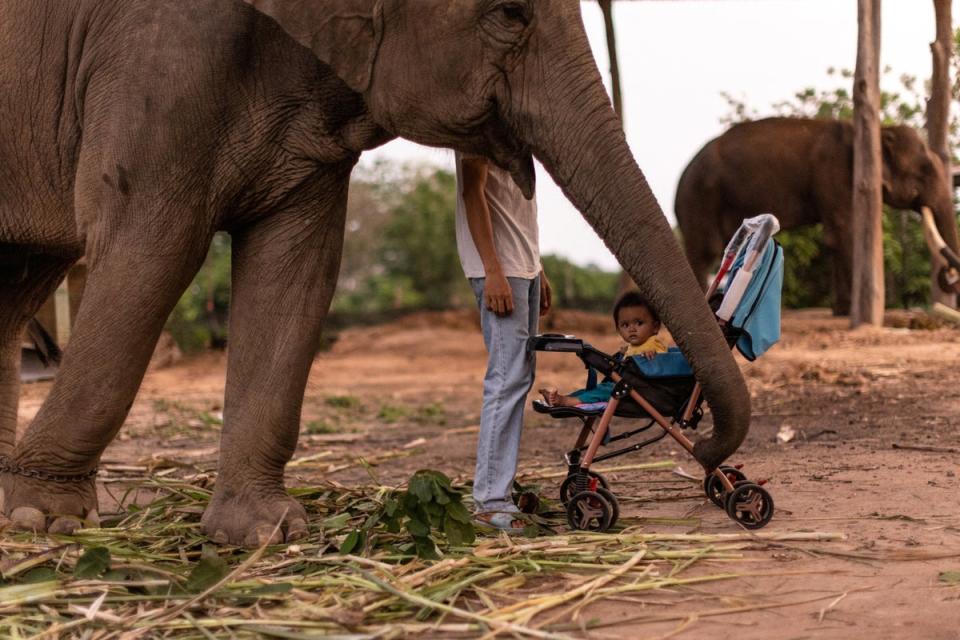
It is a new – and insecure – source of income for the family, which earned money before the pandemic by doing elephant shows in the Thai city of Pattaya. They top up their earnings by selling fruit.
Like thousands of other elephant owners around the country, the Sapmak family had to return to their home village because the pandemic decimated elephant camps and foreign tourism ground to a virtual halt.
“We are hoping for tourists to [return]. If they come back, we might not be doing these livestreams any more,” Siriporn says.


“If we get to go back to work, we get a [stable] income to buy grass for elephants to eat.”
Edwin Wiek, founder of Wildlife Friends Foundation Thailand, estimates that at least 1,000 elephants in Thailand would have no “proper income” until more tourists return.
Thailand has between 3,200 and 4,000 captive elephants, according to official agencies, and about 3,500 in the wild.
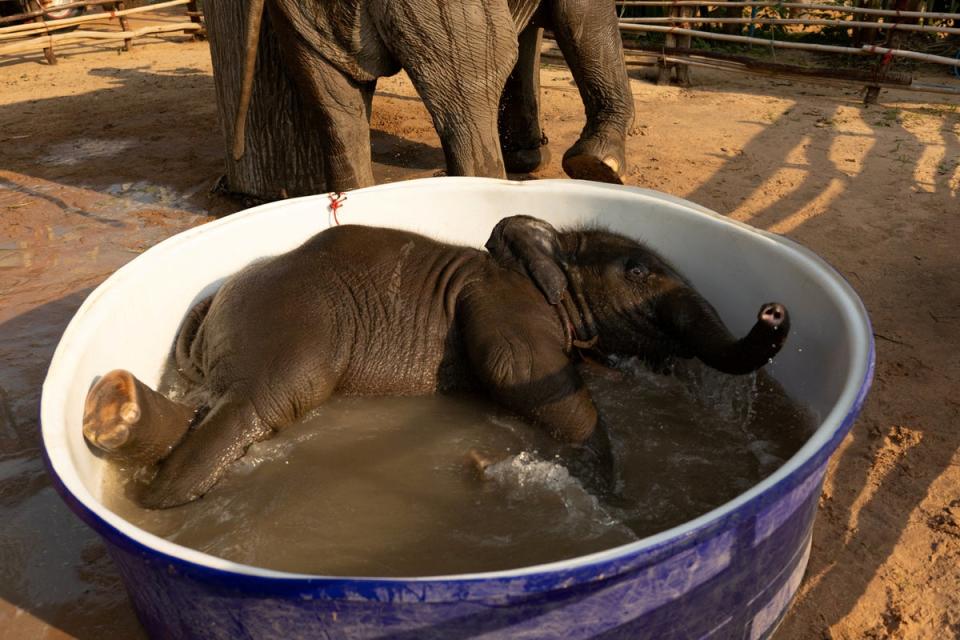
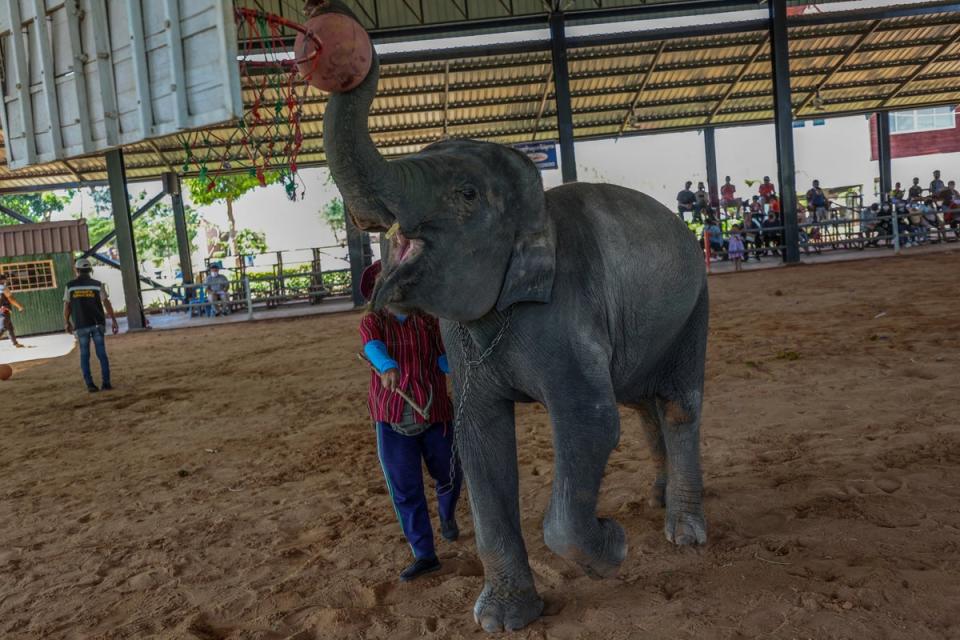
Wiek says the livestock development department needs to find “some kind” of budget to support these elephants.
“Otherwise, I think it’s going to be difficult for most families to keep them alive,” he says.
The families in Ban Ta Klang, the epicentre of Thailand’s elephant business, located in Surin province, have cared for elephants for generations and have a close connection with them.
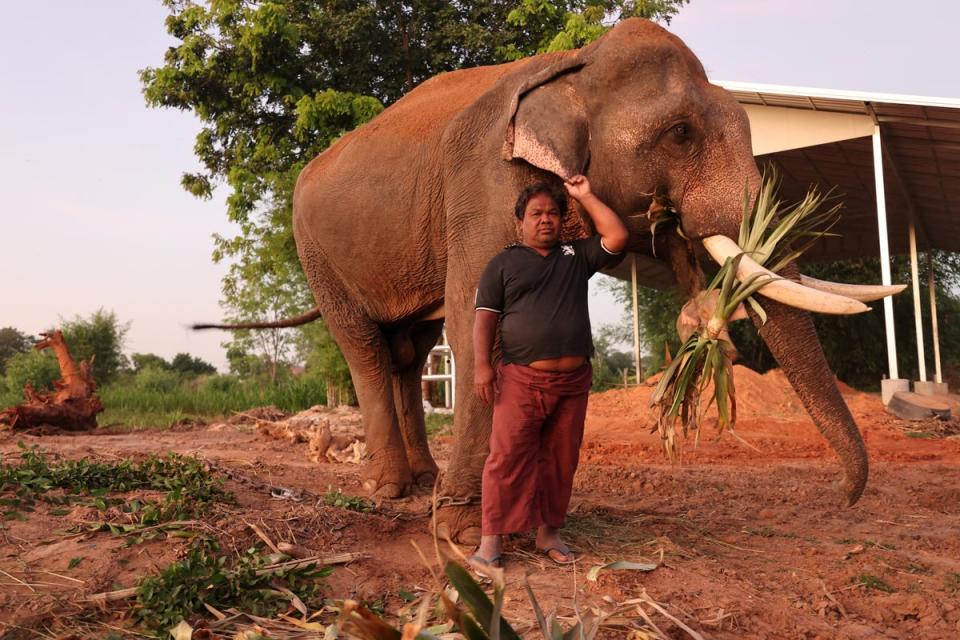

Elephant shows and rides have long been popular with tourists, especially the Chinese, while animal rights groups’ criticism of how elephants are handled there has given rise to tourism in sanctuaries.
“We are bound together, like family members,” Siriporn’s mother Pensri Sapmak, 60, says.
“Without the elephants, we don’t know what our future will look like. We have today thanks to them.”


The government has sent 500,000kg of grass across multiple provinces since 2020 to help feed the elephants, according to the livestock development department, which oversees captive elephants.
Elephants, Thailand’s national animal, eat 150kg to 200kg each day, according to the Wildlife Conservation Society.
However, Siriporn and her mother say they have not yet received any government support.

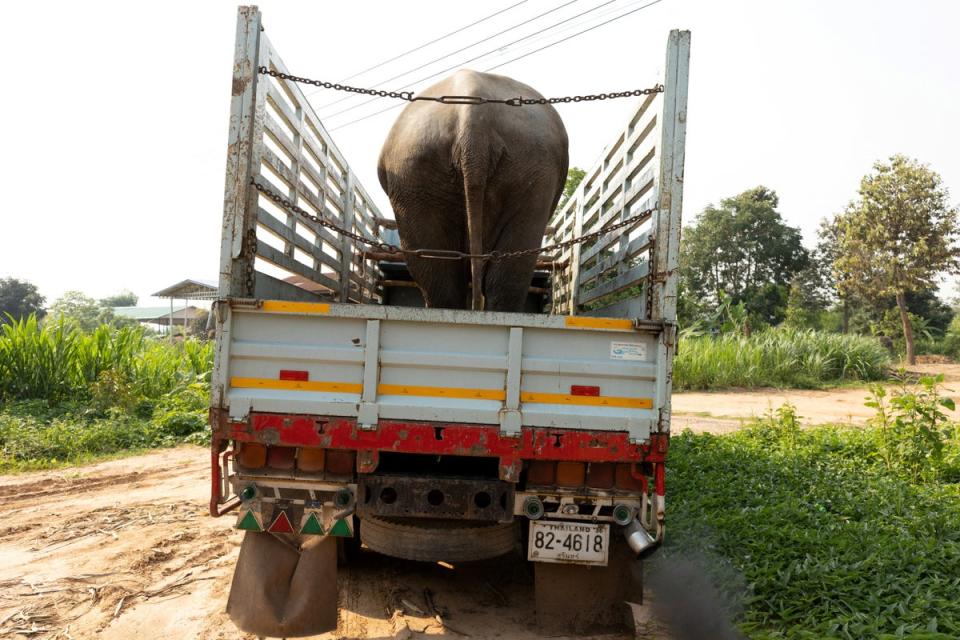
“This is a big national issue,” says livestock development department director-general Sorawit Thanito.
He says the government plans to help elephants and their caretakers and that “measures along with a budget will be proposed to cabinet”, without giving a time frame.
While the government is expecting 10 million foreign tourists this year, some say this might not be enough to lure elephant owners back to top tourist destinations.
“Who has the money right now to arrange a truck? And how much security [do] they have that they are really going to have business again when they go back?” says Wiek.

 money
money 